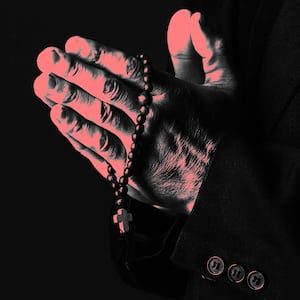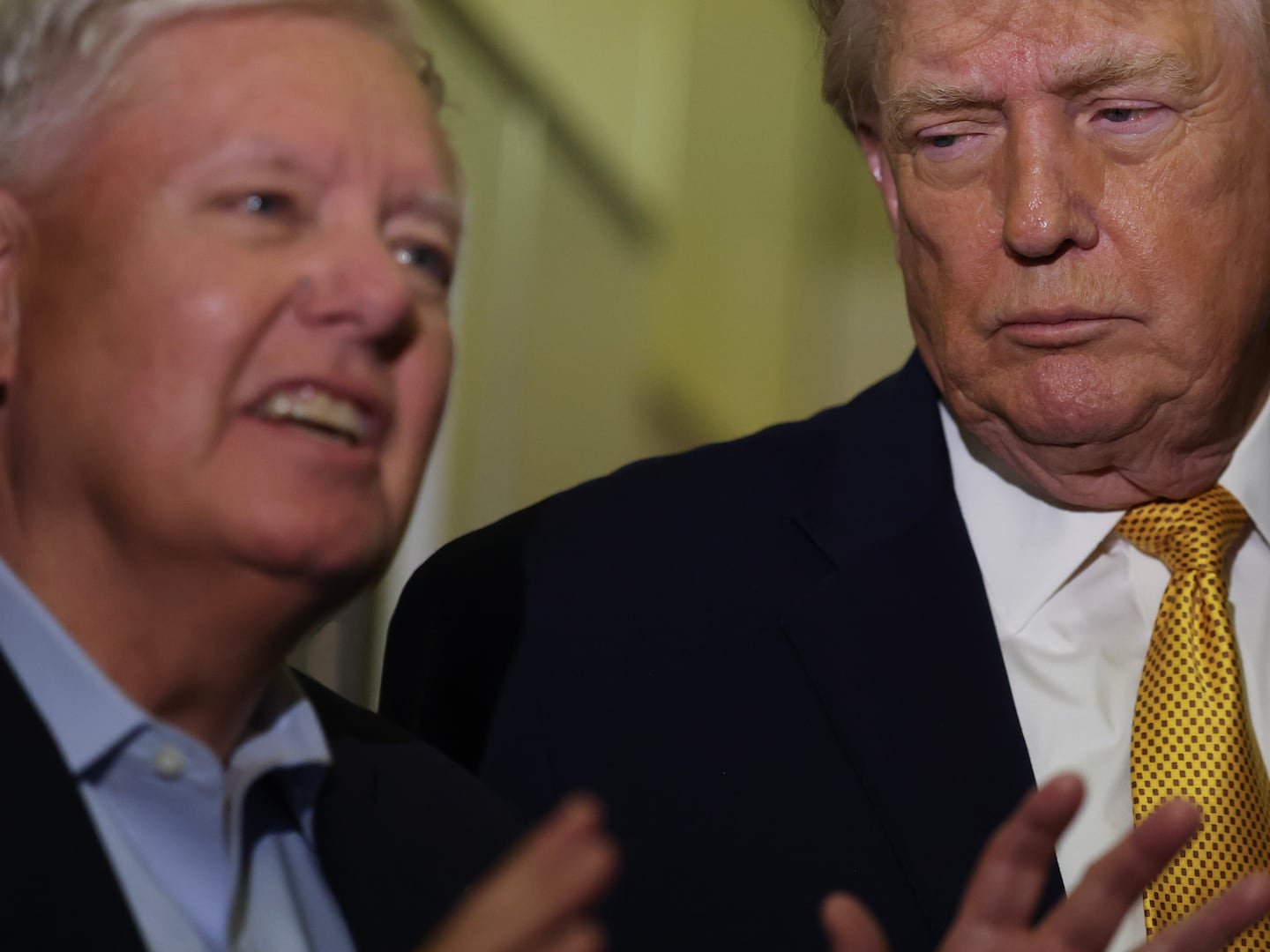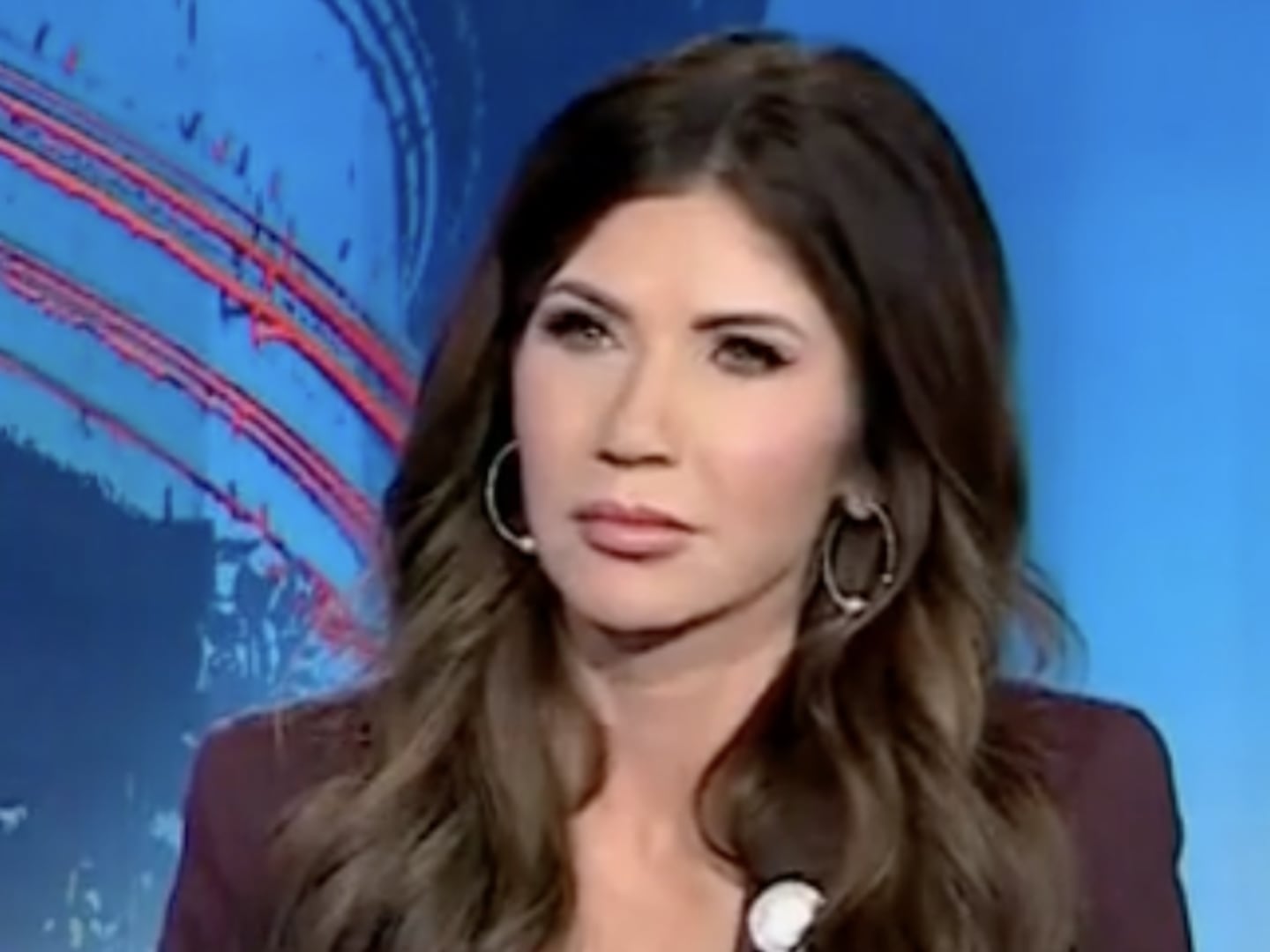memberFor many years, Father John McCloskey was a sort of priest to the stars, especially to high-profile and often Republican converts to Catholicism like Newt Gingrich and the current White House economic adviser Larry Kudlow.
He would shepherd them through their conversion and then baptize them in flower-laden cathedrals. He was a regular on television in the early 2000s, often appearing on NBC’s Meet the Press to talk about the clerical sex-abuse scandal that was then just coming to light, and he was even featured in a glowing New York Times piece about ministering to the mighty.
But as his star was rising, Father McCloskey was harboring a secret—and an expensive one at that—that he kept with members of the ultraconservative Catholic order Opus Dei, to which he belonged. In 2005, his order paid nearly $1 million to a prominent D.C.-area woman to silence sexual-assault allegations that he repeatedly groped her during the time he was her spiritual counselor as she struggled with depression brought on by marital issues, according to The Washington Post, which first broke the story on Monday.
“I love Opus Dei, but I was caught up in this coverup,” the woman told the paper. “I went to confession thinking I did something to tempt this holy man to cross boundaries.”
Opus Dei says McCloskey left active ministry in early 2017 when they say it became clear he was succumbing to “advanced Alzheimer’s” disease and could no longer serve the public or, for that matter, comment on the allegations against him.
According to a statement by Monsignor Thomas Bohlin, the vicar of Opus Dei, published January 7, “Father McCloskey currently suffers from advanced Alzheimer’s. He is largely incapacitated and needs assistance for routine daily tasks. He has not had any pastoral assignments for a number of years and is no longer able to celebrate Mass, even privately.”
But The Daily Beast found dozens of complex articles he wrote in 2017 and at least one article he authored as late as 2018—a book review of Aquinas and Evolution titled “How Does St. Thomas Aquinas Approach Evolution?” in National Catholic Register in which McCloskey is identified as a “church historian who writes from Virginia.”
If Father McCloskey is truly incapacitated, as his religious order says he is, it is nothing short of a miracle that he can write about such complex topics. And if he's not, it is nothing short of a lie.
The woman, unnamed because of the sensitivity of sexual-assault allegations, met Father McCloskey when he led the Catholic Information Center on K Street in downtown D.C. She went directly to the Opus Dei hierarchy with her complaint after the groping started. Soon she was offered a handsome settlement of $977,000 and a promise that McCloskey would be removed from ministry with women. McCloskey then dropped out of the D.C. circuit, serving in Chicago and Palo Alto, California, with a short stint in the United Kingdom. He made rare appearances on television and largely kept a low profile.
The victim told her story to The Washington Post after it was revealed that despite assurances that Father McCloskey would never get the chance to fondle another member of the faithful, the priest was never actually punished and was allowed access to other vulnerable women.
But days after the Post first revealed the massive payout, the Chicago Archdiocese was forced to admit that there had been no restrictions at all placed on McCloskey while he served the archdiocese, despite a call the woman said she made to warn them.
Opus Dei is unique among Catholic orders in that it controls the movements of its members and places them in hand-picked dioceses around the world after the acceptance of the bishops who run them. Because of that, these coverup allegations stand out from prior coverups that have been exposed, because those have been generally carried out by church officials who are in charge of a particular geographical area. In the case of Opus Dei, the onus is strictly on them.
McCloskey’s alleged crimes were not part of the public record because complaints went directly to Opus Dei, not to the diocese itself.
The woman told the Post that she had spoken to Cardinal Francis George, who ran the Chicago Archdiocese, shortly after McCloskey was transferred there and the cardinal assured her that he would make sure the abuse never happened again. Cardinal Francis died in 2015 and his files apparently do not have a reference to the woman’s telephone call or any information from Opus Dei regarding McCloskey or the payout, the Chicago Archdiocese says.
Opus Dei spokesman Brian Finnerty says the order did notify the Chicago Archdiocese and admitted that at least two other women have also complained about McCloskey’s misconduct, the Post reports. One woman lodged a complaint with the religious community that she was “made uncomfortable by how he was hugging her,” and another is potentially even more serious, if confirmed. The whereabouts of these women have not been made public.
On Monday, in response to the Post article, Opus Dei said it had instructed McCloskey that his only contact with women was to be through the confessional wall divider and not directly. But a spokesperson for the Archdiocese of Chicago, itself under heavy scrutiny for its handling of clerical sex abuse of minors, said it has no record that McCloskey was under any kind of restriction at all, despite the victim’s persistent calls. Opus Dei also insists that the Chicago Archdiocese had been told.
“We thought that Father McCloskey would be capable of exercising his ministry as a priest,” Finnerty said in a statement after the Post exposé. “I think the point to remember is that Cardinal George was fully aware of what happened.”
Of course, there is no way to confirm that now.
—With additional reporting by Adam Rawnsley.







